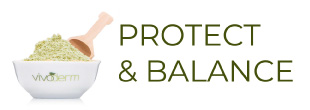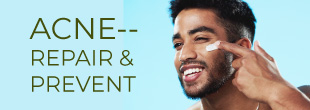Eliminating Allergens
 If you suffer from sensitive or dry, delicate skin, you already know how difficult it can be to find a skin care product that does not cause a negative reaction. However, have you considered many other kinds of chemicals you are exposed to every day? Many unsuspecting products, like household cleaners, air pollution and even industrial chemicals in your furniture can induce inflammation in susceptible individuals. If you suffer from dry or sensitive skin, you are more at risk for reactions, especially if you are already experiencing extreme dryness or eczema symptoms.
If you suffer from sensitive or dry, delicate skin, you already know how difficult it can be to find a skin care product that does not cause a negative reaction. However, have you considered many other kinds of chemicals you are exposed to every day? Many unsuspecting products, like household cleaners, air pollution and even industrial chemicals in your furniture can induce inflammation in susceptible individuals. If you suffer from dry or sensitive skin, you are more at risk for reactions, especially if you are already experiencing extreme dryness or eczema symptoms.
To repair your natural skin barrier, you must first take active steps to build it up by eating healthy fats – like olives, avocados and raw nuts or butters and engaging in a natural healthy diet to start. To further help your condition, review the dermatological list below to identify, and where possible, eliminate allergy-causing ingredients. Whether what you experience is merely a sensitivity or full-blown allergic reaction, try to eliminate anything that causes inflammation and can degrade your skin barrier – and its ability to protect you from harmful irritants. Give your skin a chance to heal by protecting it from things that may cause a reaction.
1. Eliminate chemical ingredients in skin care and perfumes – including parabens and all manner of chemical substances until you have narrowed down your reactions.
2. Eliminate problem ingredients in soaps, shampoo, bath, body care, dental, shaving, and conditioning products and medications. Avoid products that foam or contain detergents. Always rinse thoroughly after cleansing and shampooing. Protect your skin with moisturizer afterwards.
3. Avoid direct contact with dish and laundry detergents, household cleansing products, paints, strippers, furniture polishes, and other ingredients containing harsh chemicals. Wear gloves, moisturize, or avoid contact with suds: altogether. Studies show that residual detergent remaining in laundery or clothing may be a prime contributor to eczema. Rinse your clothing twice if your washing machine allows.
4. Notice whether fabrics in clothing, furniture, or bedding are irritating your skin due to their rough texture or chemicals treating them. Use hypoallergenic protectors on mattresses and large furniture if this is the case.
5. Pay attention to contact allergies from jewelry, flatware, and coins or metals containing nickel, a common allergen. Some are allergic to gold, so always be aware of unsuspecting culprits.
6. Only use quality filtered water and avoid hard water when possible. Chlorinated water, excessively hot water, or long soaks in baths, showers, or hot tubs, can strip precious oils from your skin.
If you consider all these factors and use them diligently, your skin barrier can be restored and you may be able to withstand common irritants and practices. But for now, notice what chemicals irritate you and avoid contact with them at all costs in order to give your skin a chance to rebuild itself. If you are unable to address your symptom on your own, ask a professional dermatologist about patch testing, which can help you determine exactly what your allergies may be.




